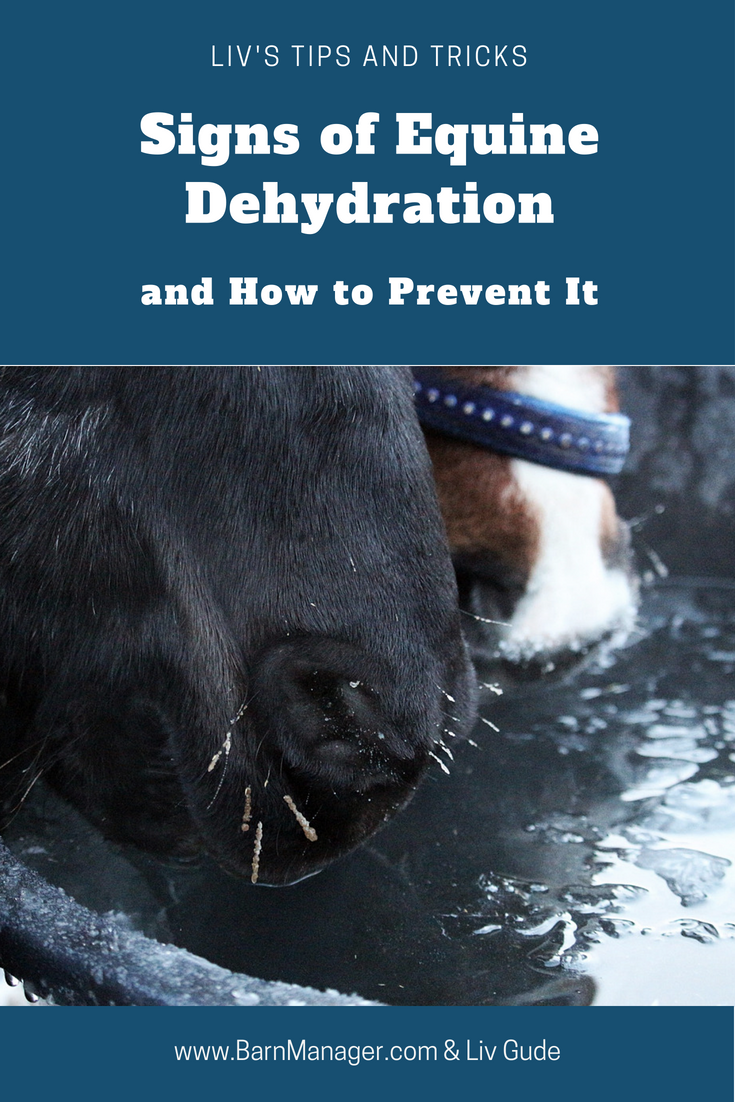
Dehydration is more than just your horse being extra thirsty – it can become a veterinary emergency.
Pulling a bit of his skin on the neck to see how fast it snaps back is not a reliable way to measure hydration. Older horses have less elastic skin!
You need to look at your horse’s gums. Pale, white, red, or blue gums are a sign of severe danger. The gums must also be slippery and slick, not dry or sticky.
In the warmer summer months, use electrolytes a few hours before you exercise your horse. This helps retain water.
Keep plenty of fresh water available and make sure your horse gets at least a tablespoon of salt per 500 lbs of body weight every day – no matter the season.
BarnManager can help track supplies, medical records, and watering reminders – to sign up for a free trial click here!